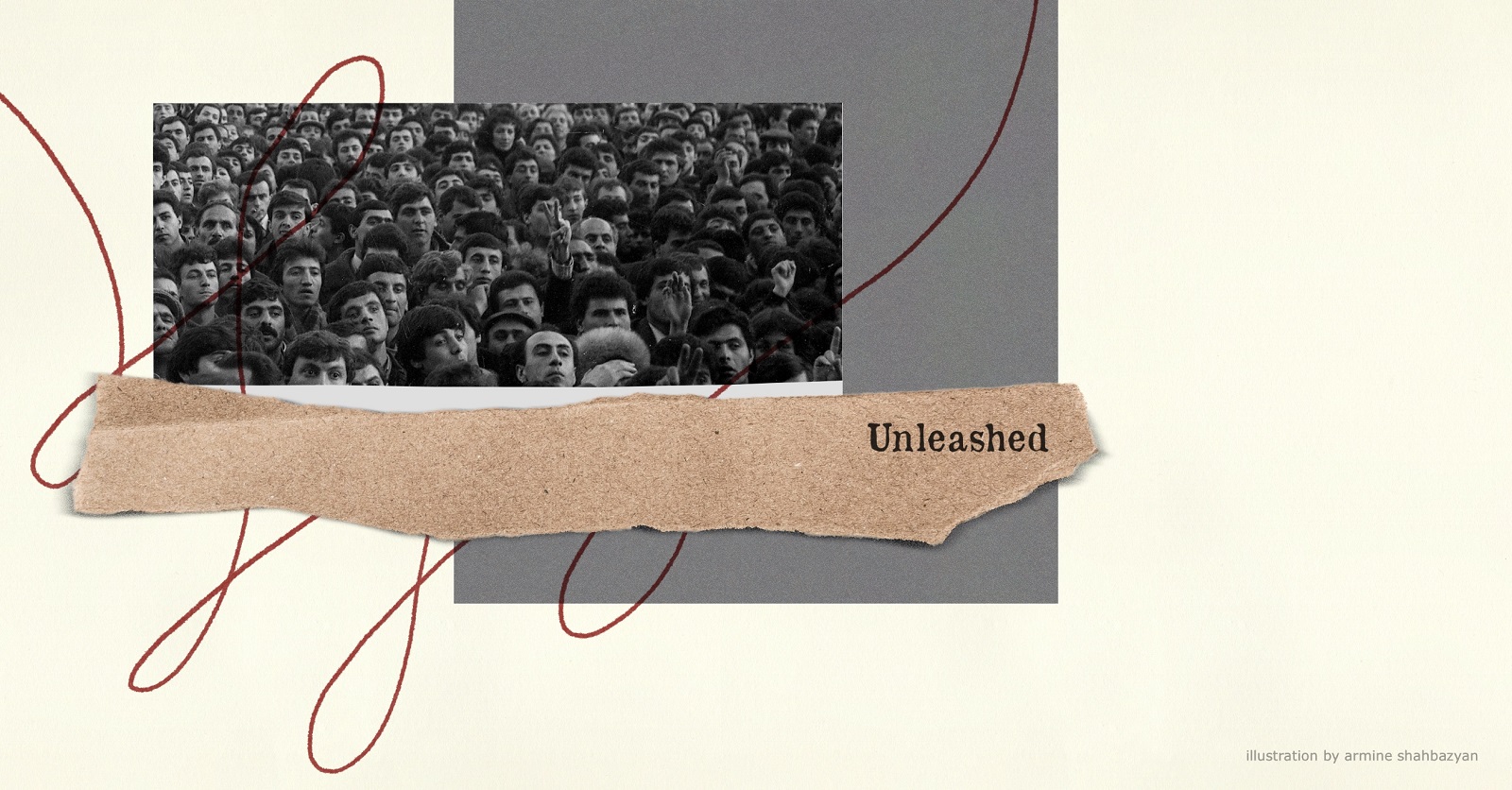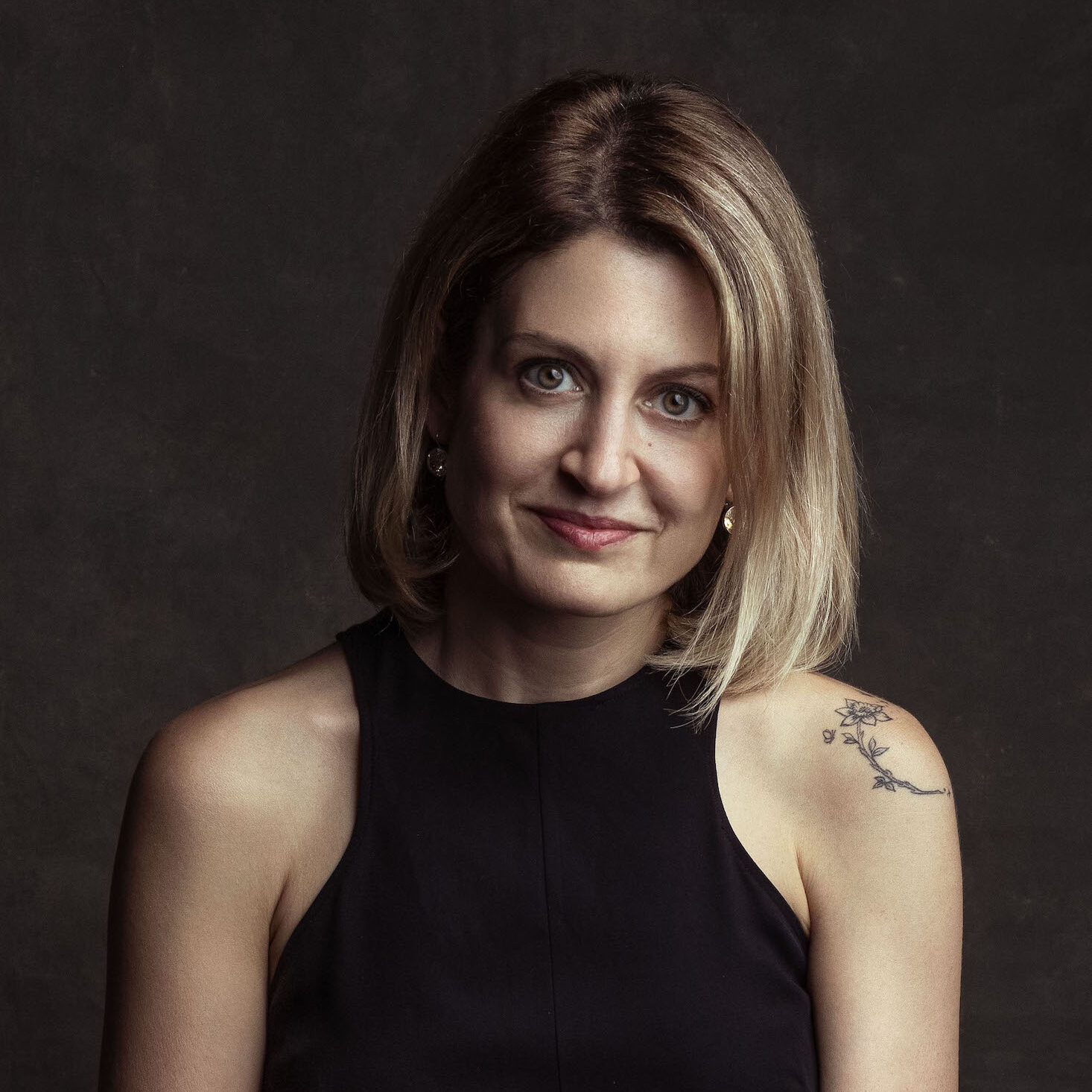

On October 7th of last year, Hamas launched a devastating assault on Israel, resulting in over 1,200 Israeli deaths and more than 240 hostages taken. Israel’s response marked a horrible escalation in a long-standing conflict, widely condemned as genocidal. One year later, over 41,000 Gazans are dead, and most of Gaza lies in ruins.
For Armenians, October 7th of last year also marked something else—a decisive shift in the world’s gaze. In late September 2023, global attention briefly focused on the Armenian population of Nagorno-Karabakh, driven out en masse as victims of ethnic cleansing by Azerbaijan. Then, within a week, the international community swiftly turned its attention to the unfolding crisis in Israel, leaving the trauma and loss of our people in the shadows, where it has remained ever since.
The dreams and aspirations of the Armenians of Nagorno-Karabakh for sovereignty and self-determination, much like those of the Palestinians and other disempowered populations, reflect a struggle that resonates as we navigate our own paths in life. As individuals living in a world that often dismisses us, how do we learn to assert our own sovereignty and reclaim our autonomy—not just as nations, but within ourselves?
Sovereignty, at its core, is about freedom. It’s the ability to govern oneself, to make decisions unfettered by the control or influence of others. And so, the pursuit of sovereignty is not just the goal of states; it’s something we, as individuals, must strive to achieve within ourselves.
Learning to stand on my own two feet while working in conflict and post-conflict environments, far from the stability of family, I’ve found myself untethered, alone, and often terrified, grappling with the seemingly repeated wreckage of my personal life. Lost loves, betrayals of trust, physical assaults, and financial thefts—to name just a few of the blows thrown my way since venturing out into the world on my own—have left me picking up the pieces over and over again, each time wondering how I could rebuild from the rubble.
But when I reflect on the very people I have worked with—victims of atrocities, those who have lost everything, including land, property, and loved ones—I draw enormous inspiration. I’ve personally witnessed countless survivors of extreme violence formidably rebuild their lives from so much devastation. These heroes remind me that sovereignty, both political and personal, isn’t about never falling—it’s about reclaiming yourself after every collapse, and each time, leveling up. Every time I’ve had to gather the broken fragments of my life, I’ve found new strength and a deeper sense of self. The lessons I’ve learned from those who have lost everything have become the bedrock of my own autonomy.
We live in a world where external forces constantly try to shape and influence our choices, whether through societal pressures, expectations, or even global events that push our personal needs and desires aside. Much like breakaway states struggling for recognition, we find ourselves yearning for the ability to live according to our own values, free from the dictates of others. But how do we get there?
Like a sovereign state that defines and defends its borders, personal sovereignty starts with knowing where you end, and the rest of the world begins. It requires a deep understanding of who you are, and an unwavering commitment to setting and enforcing personal boundaries, just as a nation guards its borders against incursions. This is about learning to say no when necessary, about prioritizing your own well-being over the demands of others, and being unafraid to defend your space and your truth.
At the heart of sovereignty is self-determination, which means taking ownership of your life and your decisions. It involves stepping away from the path that others may have laid out for you and silencing the noise of the world telling you what you should be. In many ways, this is the hardest part—because to be sovereign within requires the courage to listen to your own voice and to trust in your own judgment.
What else can the struggle of breakaway states like Nagorno-Karabakh teach us about ourselves? They remind us that sovereignty is never easily won and can quickly be lost. They urge us to remain vigilant, keeping our guard up while remaining open and vulnerable. And they demand us to maintain an unshakeable belief in our right to exist as we are, and the determination to pursue that right even when the world tells us no.
Sovereignty within is not about isolating yourself from the world but about living in it on your own terms. It’s about making choices that reflect who you are and protecting your essence from anyone or anything that would seek to harm or control it. And just as the lack of international recognition of Nagorno-Karabakh’s statehood never detracted from its real, actual, de facto independence and existence, sovereignty within means that our worth is not tied to external validation. It is something we cultivate from the inside, something that no one can ever take away from us.
As Armenians, we know all too well the pain of being overlooked, of having our suffering minimized, denied, or ignored. But we also know the power of endurance, of holding on to who we are in the face of everything that tries to erase us. To be sovereign within is about finding that power in ourselves and taking control of our lives and our destinies, no matter how the world shifts around us.
See all [Unleashed] articles here
Listen to Sheila’s personal reading of “Sovereign Within”.

Sheila Paylan is an international human rights lawyer and former legal advisor to the United Nations. Now based in Yerevan, she regularly consults for a variety of international organizations, NGOs, think tanks, and governments.

